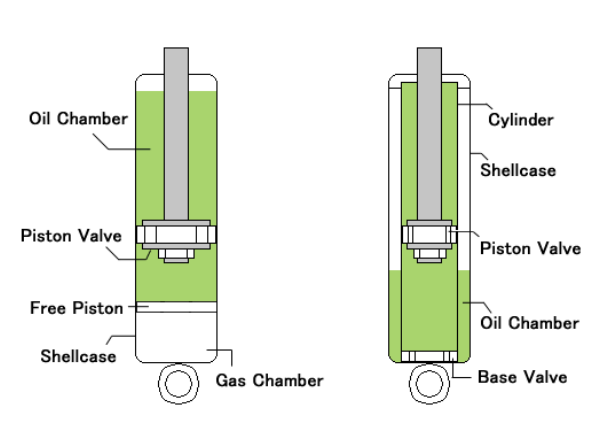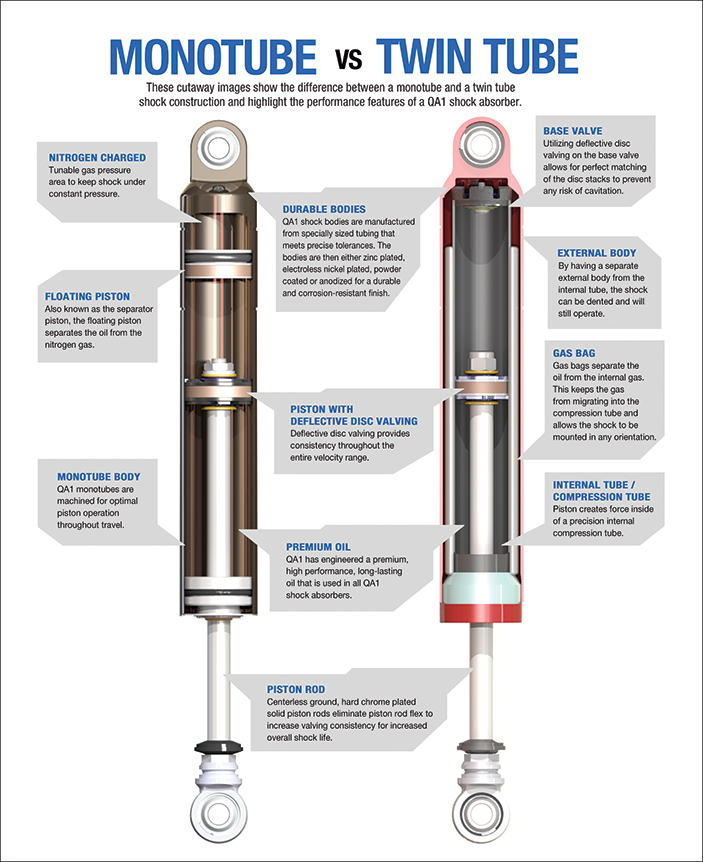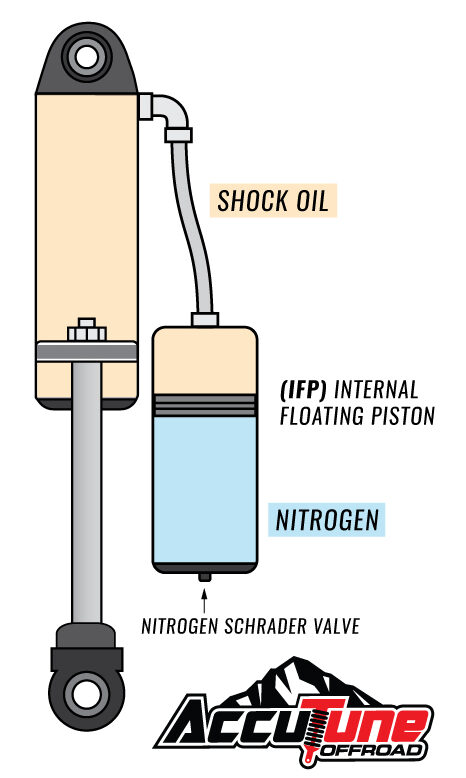Off-road enthusiasts, whether novices or experienced adventurers, understand the critical role that shocks play in ensuring a safe and enjoyable ride. Shocks, or shock absorbers, are an integral part of a 4×4 vehicle’s suspension system, as they work with the springs to control the vehicle’s movements in any terrain. Selecting the appropriate shocks is crucial for optimizing off-road performance. There are a number of factors you should consider when choosing shocks for your 4×4, and a wide variety of styles and brands available.
- Vehicle Type and Intended Use
The foremost factor to consider is your vehicle type and intended use. The type of 4×4 you own, whether it’s a heavy-duty truck, an SUV, or a smaller off-roader like a Jeep, will influence the shocks you need. Different types of vehicles have varying suspension requirements. Likewise, your intended use, whether it’s rock crawling, high speed offroading, overlanding, or casual off-roading, will determine the shock absorber characteristics that suit your needs.
- Understanding Shock Absorbers: The Basics
The simplest way to understand a shock absorber, is that it exists to convert motion energy to heat energy. The shock must then dissipate that heat into the air. There are three primary types of shock absorbers to choose from: twin-tube, monotube, and bypass. All of these shocks use both gas and oil to control dampening.
As the shock moves with the suspension, the gas and oil are diverted through valves inside the shock body and/or reservoir (depending on shock design). This restriction causes heat to be absorbed into the oil, and repeated motion of the shock piston will build up heat. Too much heat in certain shock designs will allow the gas to mix with the oil, cavitation (also known as “shock fade”). Shock fade will diminish the dampening abilities of the shock absorber and through repeated heavy use such as high speed off road driving, the shock can reach a point where it is no longer dampening the movement of suspension.
Twin-tube shocks are the most cost effective but provide basic damping control. This design is most prone to shock fade. The twin-tube design allows for more piston travel than a monotube design due to it’s lack of need for a nitrogen chamber and floating piston.

Monotube shocks offer improved performance, as their design separates the gas from the oil, making them better at dissipating heat and less susceptible to shock fade. The pressurized gas in the shock helps to better dampen abrupt and jarring suspension movements. Monotube shocks offer less body length to piston travel ratio, due to the floating piston and nitrogen chamber taking up space inside the shock body.

Reservoir shocks are the third major shock design to consider. The reservoir shock is a derivative of the monotube shock design, with the key difference being that the nitrogen chamber is moved to the reservoir, and the entire shock body and a portion of reservoir contain oil. This gives more room for the shock piston to travel, allows for more oil volume to dissipate heat, and typically has a much larger nitrogen chamber resulting in a higher performance shock all around.

- Vehicle Weight and Load
The weight of your 4×4 vehicle and the load you typically carry are important considerations. Heavier vehicles and those often loaded with equipment or passengers require shocks with higher load-bearing capacities (a firmer shock) to maintain stability and control.
- Terrain and Driving Conditions
These three different shock types are designed to perform optimally in specific terrains and driving conditions. If you primarily drive on-road, on mild off road terrain at speeds up to 25 MPH, or are building a budget rock crawler with maximum articulation—twin-tube shocks are likely the best option. If your vehicle frequently bounces down rocky trails, travel at higher speeds on rough dirt and gravel roads, or often hauling heavy loads, the monotube shock is for you. When cost is much less of a factor, and you demand excellent articulation, maximum suspension travel, and high speed shock absorption capabilities, the reservoir shock is your ultimate choice.
- Damping and Rebound Rates
The damping and rebound rates of shocks significantly affect how your 4×4 handles bumps and uneven surfaces. Most shocks in the $100+ range today are sold as a vehicle-specific part, with valving and (if applicable) gas pressures suited for your vehicle’s weight and spring rates. As a more expensive option to improve your vehicle’s off-road performance, we suggest shocks with adjustable damping and rebound settings, allowing you to fine-tune the ride comfort and control. Adjustable shocks are typically in the reservoir shock category, so you can expect the pricing to be a step above what a basic reservoir shock costs.
- Budget Constraints
Your budget will inevitably influence your shock absorber choices. High-end, premium shocks offer advanced features, but they come at a price. It’s essential to strike a balance between your budget and the performance level you desire, and remember that investing in quality shocks can enhance your off-road experience and potentially save you money on vehicle maintenance in the long run.
- Compatibility and Installation
We can help to ensure that the shocks you choose are compatible with your vehicle’s make and model. Installation may require modifications or additional equipment, particularly with a reservoir shock design. Our experienced team is able to factor in these costs and labor to help with your decision, and avoid any unplanned expenses.
- Brand Reputation and Reviews
Finally, we encourage you to conduct thorough research on various shock absorber brands and read reviews from fellow off-road enthusiasts. A reputable brand with positive user feedback often indicates quality and reliability. We are happy to offer our recommendation and speak from our experience here as well.
In conclusion, selecting the right shocks for your 4×4 vehicle is a critical decision that can significantly impact your off-road adventures. By considering your vehicle type, intended use, terrain, and other relevant factors, you can make an informed choice that enhances both the safety and enjoyment of your off-road experiences.
For more on this topic, check out our YouTube Episode:
by Jon Tirrell
Mount Zion Offroad Staff Writer